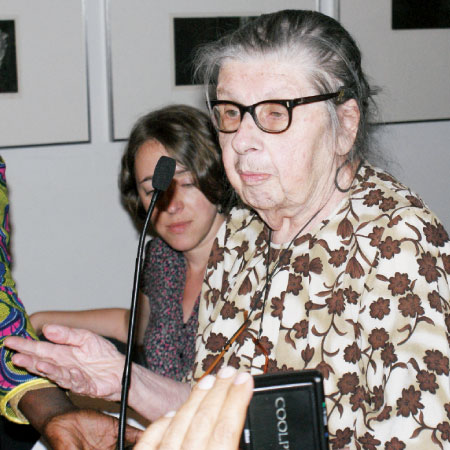×
The Standard e-Paper
Fearless, Trusted News
 |
| Majorie Oludhe MacGoye, a poetess. [PHOTO: COURTESY/STANDARD] |
By JENNIFER MUCHIRI
NAIROBI, KENYA: Many Kenyans who consider themselves book lovers will confess that most of the literature they read is in prose. Few take time to read drama, unless they are students of Literature who are required to do so for their coursework, and even fewer bother to read poetry.